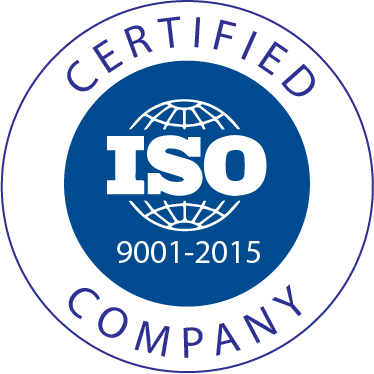Cancer continues to be one of the most formidable health challenges facing India today, with millions of new cases diagnosed annually. Our diverse population and varying access to healthcare resources justify cancer treatment costs in India. Comprehensive knowledge of these costs is crucial for those directly affected, family members and healthcare policymakers. This understanding aids in effective financial planning and facilitates informed decisions when choosing treatment options and providers. In this context, several healthcare institutions in India have emerged as leaders in cancer treatment, combining advanced medical technology with skilled expertise to offer adequate care.
Overview of Cancer Treatment in India
Cancer treatment in India is characterized by a broad spectrum of therapies designed to combat various types of the disease. These treatments range from traditional approaches like surgery, chemotherapy, and radiation therapy to more recent advances such as targeted therapy and immunotherapy. The treatment regimen depends on the specific type of cancer, its progression at diagnosis, and the overall health condition of the patient. Indian healthcare offers these services through public and private sectors, each playing a crucial role. The public sector is often more affordable but may have longer waiting times, whereas the private sector is noted for its quicker service and more advanced technologies. In recent years, India has seen significant growth in adopting new cancer treatment technologies and methods, enhancing both the effectiveness of treatments and patient outcomes.
Cost Analysis by Cancer Type
Breast Cancer
Breast cancer ranks as one of the most common cancers affecting women in India and worldwide. The economic burden of treating breast cancer can be substantial and varies significantly:
- Diagnosis: Early diagnosis techniques include mammography and ultrasounds, which are relatively affordable, but more detailed diagnostics such as MRI and biopsies can increase costs.
- Surgery: Costs for surgery vary depending on whether a patient undergoes a lumpectomy, partial mastectomy, or total mastectomy, with reconstructive surgery adding to the expense.
- Chemotherapy: The type and number of chemotherapy cycles prescribed can significantly affect the total cost, influenced by the specific medication used.
- Radiation: Advanced radiation treatments like IMRT (Intensity-Modulated Radiation Therapy) offer targeted treatment at a higher cost. These costs also differ based on the location and type of hospital—private hospitals generally charge more than public ones.
Lung Cancer
The treatment costs for lung cancer, one of the leading causes of cancer deaths globally, reflect the complexity of treating this disease:
- Diagnosis: Includes initial consultations, imaging tests like CT scans, and invasive procedures like biopsies. Additional specialized diagnostic tools may include PET scans and molecular testing, which can increase costs.
- Surgery: The complexity of lung surgery can vary, impacting costs—more invasive surgeries like pneumonectomy are more expensive than less extensive procedures such as wedge resections or segmentectomies, which involve removing smaller portions of lung tissue.
- Chemotherapy: As with breast cancer, the specific drugs and the number of cycles can significantly influence costs. The type of chemotherapy, whether it is a standard protocol or a newer, targeted drug, also affects the overall expense.
- Radiation: Techniques such as SBRT (Stereotactic Body Radiation Therapy) are highly effective but more costly. The variance in treatment expenses is influenced by geographical location and whether treatment is sought in the public or private sector.
Colorectal Cancer
Colorectal cancer treatment involves various stages, each with associated costs:
- Diagnosis: Early screening tools like fecal tests are inexpensive, but diagnostic colonoscopies and imaging tests increase the financial burden.
- Surgery: Surgical costs depend on the extent of surgery needed, more invasive procedures like total colectomy cost more than simpler ones.
- Chemotherapy: The regimen might include several drugs, adding complexity and cost to the treatment.
- Radiation: Often necessary for advanced cases, significantly reducing the overall treatment cost. Again, treatment costs vary by hospital type and location, with metropolitan centers and private hospitals typically charging more.
Cervical Cancer
Cervical cancer, prevalent among women in India, requires comprehensive management:
- Diagnosis: Screening includes Pap smears and HPV tests, which are relatively cost-effective but crucial for early detection. Advanced diagnostic methods like colposcopy and biopsy may be necessary if initial tests indicate abnormalities, adding to the overall diagnostic costs.
- Surgery: Surgical interventions can range from simple procedures to more complex surgeries like radical hysterectomy, affecting costs. Costs may increase further if additional procedures such as lymph node dissection are required to assess the spread of cancer or if minimally invasive techniques like laparoscopy are utilized.
- Chemotherapy and Radiation: These treatments are often used in tandem for cervical cancer, significantly increasing the treatment complexity and cost. Cost variations for cervical cancer treatments are also marked by the choice of healthcare facility and its geographic location.
Factors Influencing Cancer treatment Costs in India
The cost of cancer treatment in India is affected by a myriad of factors that can significantly alter the financial burden on patients and their families. Understanding these elements is essential for anyone navigating the healthcare system:
- Type of Cancer: Different cancers require different treatment modalities and resources, which can vary significantly in cost. For example, blood cancers often need bone marrow transplants, which are more expensive than the surgeries required for breast cancer.
- Chosen Hospital and Location: The choice of hospital is crucial as hospitals in metropolitan areas like Mumbai and Delhi might have higher treatment costs than those in smaller cities.
- Stage of Cancer at Diagnosis: Early-stage cancers are generally less expensive to treat than advanced-stage cancers, which may require more intensive and prolonged treatment plans. Early detection often allows for more straightforward, less invasive treatments that are more cost-effective and less physically demanding for the patient.
- Specific Treatments Undertaken: The type of treatment required (surgery, chemotherapy, radiation, etc.) also impacts costs. Innovative treatments like immunotherapy can be more costly compared to conventional therapies. Additionally, combinations of treatments, such as chemo-radiation or surgery followed by adjuvant therapy, can significantly increase the financial burden.
- Treatment Duration: Longer treatment durations lead to higher costs, encompassing not just the medical treatment but also extended hospital stays and outpatient care. The longer a patient requires ongoing treatment, the more likely they will incur additional costs from supportive services and unplanned interventions./li>
- Follow-Up Care: Post-treatment follow-up visits, tests, and scans to monitor the patient’s progress can add to the overall expense. This care is crucial to catch any recurrence early and manage side effects, but it does require ongoing investment in healthcare resources.
- Supportive Medications: Treatments often necessitate supportive care, including pain management and anti-nausea medications, which can be costly. Additional medications, such as growth factors to stimulate blood cell production and steroids to reduce inflammation, may also be required, further increasing expenses.
- Other Healthcare Services: Nutritional counselling, psychological support, and physical therapy, essential for holistic cancer care, contribute to the overall treatment costs.
These factors together dictate the overall expense of cancer treatment in India, making it essential for patients and their caregivers to consider these aspects when planning for cancer care.
Different types of cancer treatment
| Treatment Type | Description | Common Uses |
|---|---|---|
| Robotic Surgery | A type of minimally invasive surgery where procedures are performed through small incisions using robotic systems. Offers high precision and faster recovery. | Used in prostate cancer, cervical cancer, and to remove tumors in hard-to-reach areas. |
| Chemotherapy | Uses drugs to kill cancer cells or stop them from growing and dividing. Can be administered orally, intravenously, or through injection. | Applied broadly across various types of cancer, including breast, lung, and colon cancers. |
| Targeted Therapy | Involves drugs that target specific genes or proteins that are involved in the growth and survival of cancer cells. | Effective in treating cancers like breast cancer (HER2-positive), lung cancer, and melanoma. |
| Hormonal Therapy | Aims to change hormone levels in the body to inhibit the growth of certain cancers that are hormone sensitive. | Commonly used for breast and prostate cancer. |
| Immunotherapy | Boosts or manipulates the natural defenses of the body to fight cancer. Can involve monoclonal antibodies, checkpoint inhibitors, or vaccines. | Used in treating melanoma, lung cancer, and more recently in cancers like bladder and kidney cancer. |
| Radiation Therapy | Uses high doses of radiation to kill cancer cells and shrink tumors. Can be delivered externally or internally (brachytherapy). | Used widely for a variety of cancers, including brain, breast, and throat cancers. |
| Stem Cell Therapy | Involves replacing diseased or dysfunctional bone marrow with healthy stem cells, which can develop into new blood cells. | Used primarily for leukemias and lymphomas. |
| Bone Marrow Transplant | A specific type of stem cell therapy where the bone marrow stem cells of patient and donor are transplanted to treat certain cancers. | Used to treat certain blood cancers like leukemia, lymphoma, and multiple myeloma. |
Each treatment type has its specific application based on the cancer type, the stage of cancer, and the overall health condition of the patient. These treatments can be used alone or in combination, depending on the case of the patient.
Leadership in Cancer Treatment in India
India is home to some of the world’s premier cancer treatment facilities, renowned for their clinical process and pioneering approaches to oncology. Among these, Indraprastha Apollo Hospital in Delhi stands out for its extensive research contributions and cost-effective treatment options, making advanced care accessible to a broader population. Similarly, the All-India Institute of Medical Sciences in New Delhi is celebrated for leading the way in medical education and comprehensive patient care, consistently setting high standards in treatment and research. Furthermore, private institutions such as Apollo Hospitals are sought after for their rapid service delivery and the utilization of contemporary therapies and technologies. These facilities provide exceptional medical care and contribute to advancing global cancer treatment protocols, ensuring that patients receive the most current and effective therapies available.
Top Doctors for Cancer Treatment in India
India’s oncology specialists are among the most respected and accomplished globally, achieved through rigorous training and a deep commitment to patient care. Many of these top doctors have honed their skills and knowledge internationally, participating in global research and gaining experience in the latest cancer treatment technologies and methodologies. Their expertise covers various oncological specialties, including surgical oncology, medical oncology, and radiation oncology. These specialists are adept at handling complex cancer cases and are deeply committed to personalized patient care. They prioritize understanding the unique needs and conditions of each patient, ensuring that treatment plans are based not only on the most recent research and innovative therapies but also tailored to optimize individual patient outcomes. This patient-centric approach, combined with cutting-edge knowledge, enables them to deliver superior care and enhance the quality of life for their patients.
Here is an overview of some top doctors in India renowned for their expertise in cancer treatment:
- Dr. Harit Chaturvedi – Dr. Chaturvedi is a leading surgical oncologist with extensive experience in his field. He is known for his contributions to surgical oncology and has been involved in numerous national and international conferences.
- Dr. Shefali Agrawal – An esteemed surgical oncologist with over three decades of experience, Dr. Agrawal is recognized for her expertise in complex cancer surgeries. She is a member of the Society of Surgical Oncology in the USA, highlighting her engagement with the global oncology community.
- Dr. S. M. Shuaib Zaidi – With a robust background in surgical oncology, Dr. Zaidi is skilled in various procedures, including robotic and thoracic surgery. He was among the first in Delhi to perform robotic esophagectomy and lobectomy for oesophagal and lung cancer.
- Dr. S. Hukku – Oncologists like Dr. Hukku would typically be well-versed in various oncological treatments and known for their medical expertise in handling complex cancer cases.
- Dr. Surender Kumar Dabas – Dr. Dabas specializes in oncological treatments related to the skull base, oral cavity, lungs, oesophagus, thyroid, and mediastinum. He has a notable presence in robotic and endoscopic surgery, enhancing his reputation as a leader in innovative cancer treatment methods.
Cancer Treatment Facilities in India
India is equipped with world-class cancer treatment facilities that are recognized both domestically and internationally for their advanced care and affordability. Here are key points highlighting the capabilities of these centers:
- Advanced Technologies: Indian cancer centers are outfitted with cutting-edge technology, such as robotic surgery systems, modern radiation therapy equipment, and comprehensive facilities for administering complex chemotherapy and immunotherapy protocols.
- Renowned Institutions: Leading facilities like Fortis Hospital in Delhi, Pushpawati Singhania Research Institute in New Delhi, and Max Super Specialty hospital across major cities is at the forefront of cancer treatment. These centers offer specialized care tailored to the specific needs of various cancer types.
- International Patient Care: These hospitals attract many international patients due to their high standards of care combined with cost-effective treatment options, making India a preferred destination for medical tourism in oncology.
- Research and Development: Many of these institutions are also involved in cutting-edge research and clinical trials, contributing significantly to global cancer research and developing new treatment protocols.
- Comprehensive Support Services: Besides core treatment facilities, these hospitals provide holistic support services, including nutrition planning, psychological counselling, and rehabilitation, ensuring a comprehensive care approach for patients.
India’s cancer treatment facilities combine expert medical care with innovative treatments and supportive services, making them competitive globally.
Facilities Provided by Hospitals for Cancer Treatment
Hospitals across India are well-equipped with state-of-the-art facilities specifically designed to manage and treat cancer effectively. These institutions boast specialized oncology wards that provide a controlled and supportive environment tailored to the needs of cancer patients. Modern surgical theatres in these hospitals are outfitted with the latest technology, enabling surgeons to perform complex cancer surgeries with higher precision and better outcomes. Advanced imaging centres are integral to these facilities, equipped with cutting-edge tools like PET scans, MRIs, and CT scanners, which are crucial for accurate diagnosis and treatment planning. Comprehensive support services are also available to assist patients throughout their treatment journeys. These services include nutritional counselling, psychological support, rehabilitation, and pain management programs. Each aspect of care is designed to provide holistic support to patients, ensuring they receive all the necessary resources to improve their health and well-being during their fight against cancer.
Conclusion
Navigating the landscape of cancer treatment costs in India necessitates a thorough understanding of the various factors that can significantly influence these expenses. With an extensive array of treatment options accessible across numerous well-equipped hospitals and facilitated by highly skilled doctors, India stands out as a leader in providing effective and economically viable cancer care. This ensures that patients have access to high-quality treatments without the burden of excessive costs. Detailed guidance is available for individuals seeking more comprehensive information on managing cancer treatment and a deeper insight into the associated costs. To explore this further and obtain personalized advice, please visit www.unimediks.com, where resources are tailored to help you navigate these complex choices effectively.















